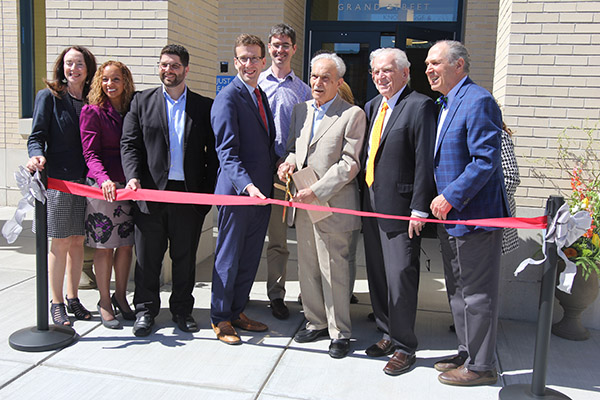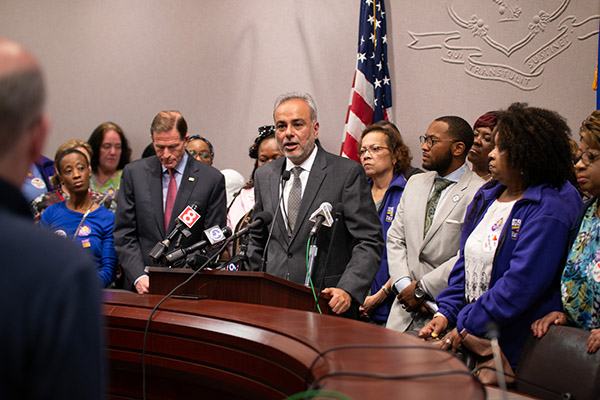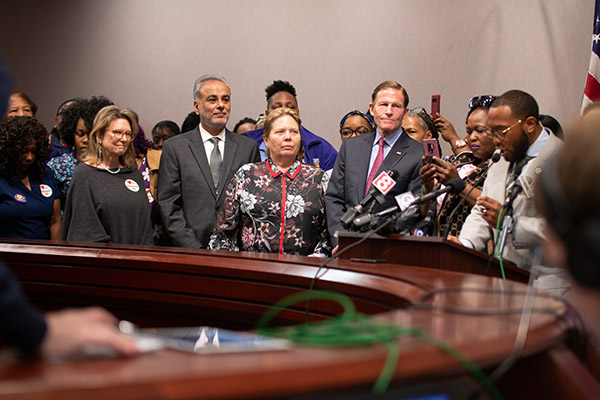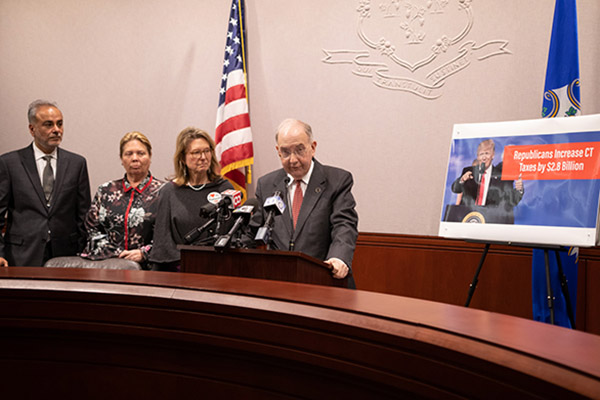Bradley Co-Introduced Bill to Expand Access of Diaper Changing Stations Passes State Senate
HARTFORD, CT – Today, legislation to increase access for diaper changing tables to men, thus enhancing the safety and health of Connecticut’s youngest residents, passed the State Senate by a bipartisan 34-2 vote. State Senator Dennis Bradley (D-Bridgeport) who co-introduced the bill and co-chairs the Public Safety and Security Committee, said this bill will greatly benefit families, and help to keep their babies healthy.
“This legislation is really about the health of babies across the state and assisting families in performing an essential part of childcare, changing their child’s diaper,” said Sen. Bradley. “Fathers and same sex male couples need access to clean, safe diaper changing stations to properly provide quality care to their little ones. Families are sharing responsibilities more and more these days, and the task of changing a diaper is not reserved solely for a woman. This legislation is catching up with the modern families of today.”
State Senator Will Haskell (D-Westport), who also co-introduced this bill, said this is important legislation and will make it much easier for families, as parents share responsibilities.
“This bill doesn’t just benefit the health and safety of children, but increases equality for all,” said Sen. Haskell. “Parenting is a job for both parents, after all. As fathers are taking an increased role in sharing responsibilities fairly, they deserve access to this daily resource. Diaper changing tables are still found predominantly in women’s restrooms, which makes it inconvenient, or even impossible, for fathers caring for their children, whether they’re equitably sharing parental duties, have sole custody or are in same-sex relationships. Without changing stations, they must change their children on restroom floors or counters. They may even wait to change their child’s diaper, which can lead to rashes and infections. This bill represents an opportunity for Connecticut to tell young parents and young families that we support them.”
Senate Bill 533, “An Act Concerning Access to Diaper Changing Stations in Public and Commercial Buildings,” will amend the state building code to require all newly constructed buildings with public restrooms to contain at least one safe, sanitary and convenient diaper changing table for women and at least one safe, sanitary and convenient diaper changing table for men on each floor of the building that is open to the public.
Diaper changing stations are typically found only in women’s restrooms, making diaper changing incredibly challenging for same sex male couples, or fathers out in public alone. Due to a lack of access to diaper changing stations, men are forced to either change their child on unsanitary restroom floors and counters, or even delay changing the diaper which can lead to uncomfortable rashes or infections for the child. More men are spending more time providing care to their children. According to data shared by Pew Research, fathers reported spending on average eight hours a week on childcare in 2016, triple the time spent in 1965.
Federal action was taken in 2016 when President Barack Obama signed a Bathrooms Accessible in Every Situation Act, or the BABIES Act, which requires diaper-changing tables in all restrooms in public federal buildings, like courthouses and post offices.
California passed similar legislation in 2017 and New York passed legislation last April mandating there must be at least one changing table accessible to both genders per each floor accessible to the public.
Before Connecticut’s diaper changing station bill was approved by the State Senate, the bill was successfully voted out of the Public and Safety Security Committee by a 20 to four vote. SB 533 now awaits action by the State House of Representatives and Governor. If enacted, will go into effect January 1, 2020.




